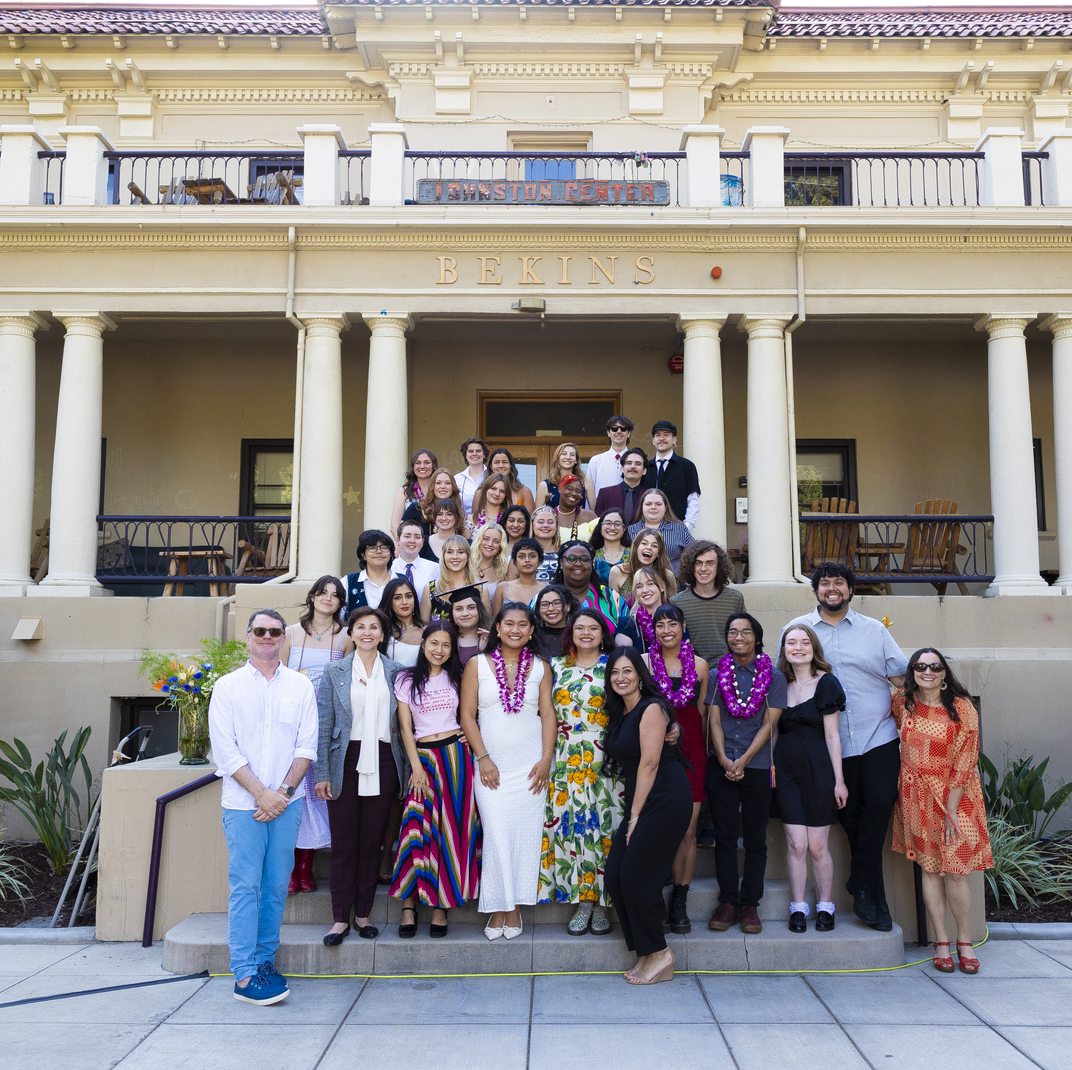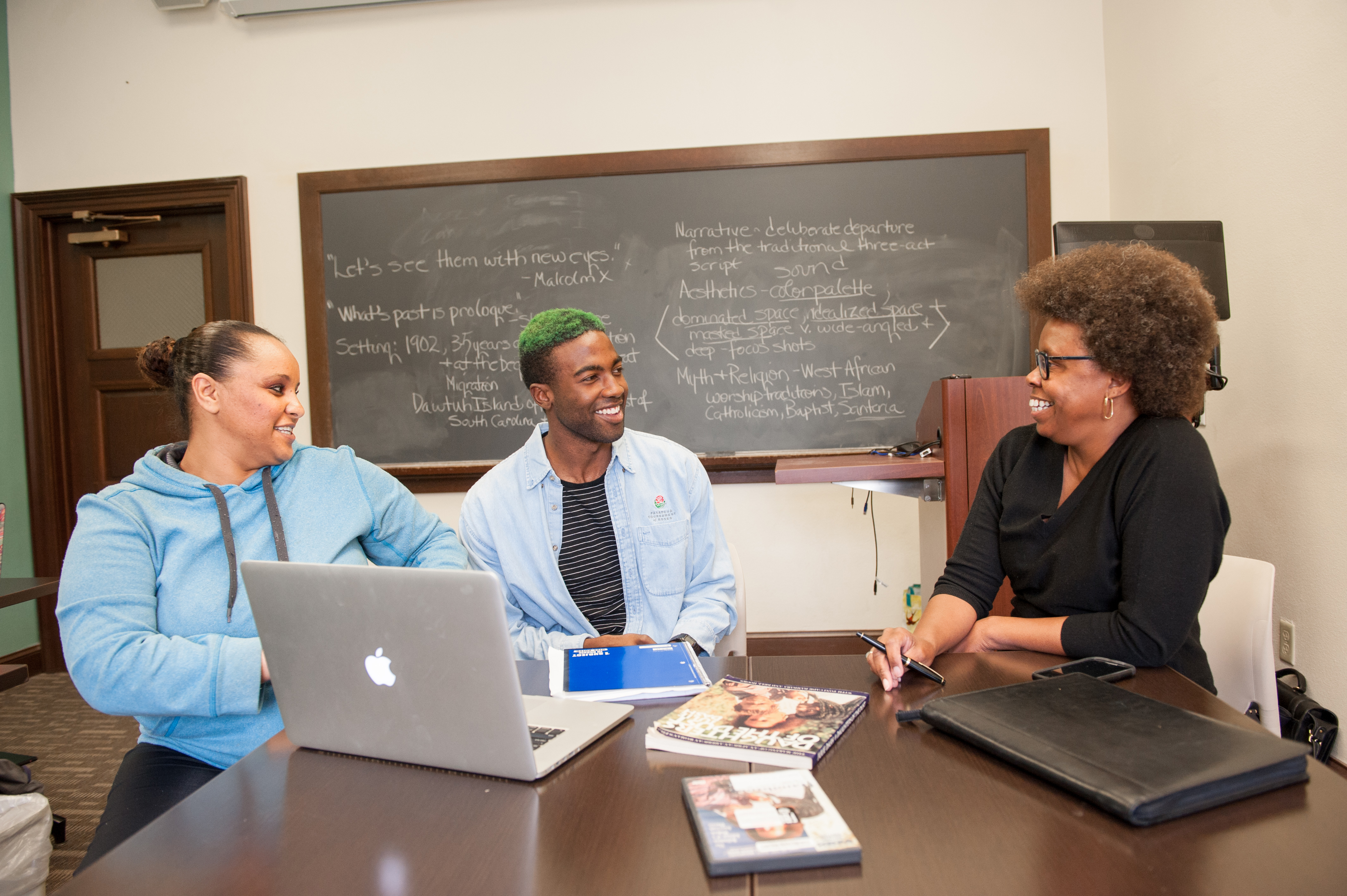
If you can dream it, you can do it at the Johnston Center.


What don't they study? Johnston students can pursue anything they can dream of. Working alongside dedicated faculty, they build a customized curriculum that blends courses from across the College of Arts and Sciences with independent studies, experiential learning opportunities, and study abroad. No two degrees are the same.
Recent Johnston degrees include:
→ Exercise Studies and Outdoor Leadership
→ Animal Behavior and Ecology
→ Interdisciplinary Approaches to Art, Identity, and Community
→ Biomedical Humanities and Global Health Ethics
→ Global Business in the Digital Age

If you can dream it, you can do it at the Johnston Center.




In your first year, you'll take courses across the University's curriculum based on your academic and professional interests. This is your chance to explore as many new fields as possible or dive into a clear path if you already know your direction. As you explore courses, you'll also be laying the foundation for either a Bachelor of Arts or Bachelor of Science degree. You'll also be introduced to the distinct features of a Johnston education, including the benefits of alternative grading through intentional approaches to classes and narrative evaluations.
In your second year, you will join the Sophomore Seminar, where you'll write your Sophomore Graduation Contract. This is the document in which you describe your Johnston emphasis, a major you create by combining courses and opportunities from across the University.
With support from your academic advisor, the Johnston director, and your Johnston community, you'll make sure your contract includes:
In your third year as a Johnston student, you'll dive deeper into your Johnston emphasis. Many students pursue internships and study internationally through one of Redlands' global partners, including the University's own Salzburg Program. With guidance from faculty and advisors, you'll stay on track to complete your academic goals and prepare for your career path or graduate school.
Senior year is when Johnston students take on senior projects and prepare for their next step toward graduate study or a career path. It's your opportunity to look back on everything you've learned and carry it forward. You'll enroll in the Johnston Senior Seminar, where you revise your Johnston Contract and reflect on your growth. With a stronger sense of your skills, values, and knowledge, you'll be ready to put your Johnston degree into action after graduation.

Johnston isn't just an academic program. We're a living-learning community that has been thriving since 1969. Johnston students live and learn together in the Johnston Complex, home to the Bekins and Holt residence halls. Inside, you'll find classrooms, faculty offices, and creative spaces like a coffeehouse, meditation room, computer center, art studio, and music room.
As an intentional, consensus-based community, Johnston students work together to use our community budget to bring in speakers, host live music and other events, and support community and academic projects. We also use a consensus-based restorative justice model that fosters trust and accountability.
Johnston graduates pursue careers as diverse as the degrees they designed. What sets them apart is the customized education that prepares them to stand out to graduate schools and employers. Explore how alumni are putting their Johnston degrees into action.












Since 1969, Johnston alumni have made their mark in communities around the world. We love welcoming them back to campus to share their experiences with our students. Each May, we invite an alum to teach an immersive May Term course, and every five years, Johnston alumni return to campus for the Johnston Renewal, a weekend of events that celebrate alumni connections and community.
Seize the endless opportunities and pursue your future at University of Redlands.
Meet the faculty and staff of Johnston Center for Integrative Studies.
Bekins-Holt Hall
N University St, Redlands, CA 92374
